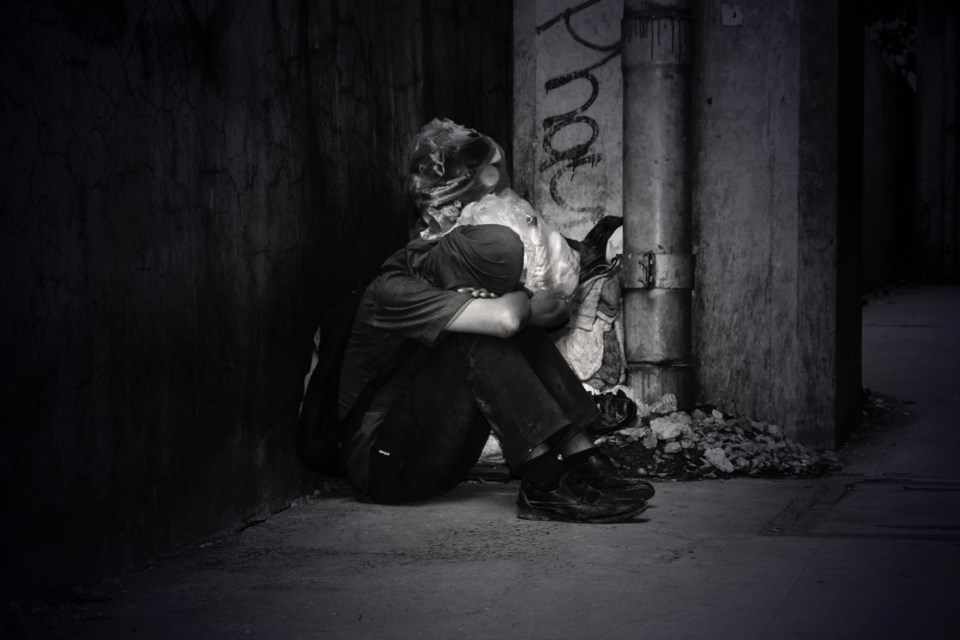Over the past year, 1,559 people experiencing homelessness have laid their head down in a hotel bed paid for by the County of Simcoe’s COVID-19 motel model emergency shelter program.
Since March 2020, more than 500 of those individuals have managed to find a new home through the program, despite a shortage of affordable housing felt county-wide.
However, now the county’s eyes are focused on figuring out what will happen to people who haven’t had success finding housing once the pandemic is over and the emergency shelters open once again with less capacity than the current motel model.
During Tuesday’s committee of the whole meeting, county councillors received an update on the program, which sees between 200 and 250 people daily on average, according to most recent county numbers.
“It behooves us to plan ahead. The exit from the motel model, which will presumably occur at some point later this year, are staff finding greater challenges in the current real estate market with actually transitioning people into housing?” asked Barrie Mayor Jeff Lehman. “I’m looking ahead to a major challenge, which is about 250 people exiting that model into our communities, but not having anywhere to go.”
Greg Bishop, general manager of social and community services with the County of Simcoe, said this question has been on the minds of county staff throughout the entire pandemic.
“We continue to work with public health and the service providers... around altering services so they can operate in a safe environment. The capacity will be significantly reduced from our pre-COVID levels, so that is something we’re concerned about, for sure,” said Bishop.
He said rental capacity is limited and the rental rates continue to be high, however the county does offer a rent supplement program to help clients bridge the gap and works with landlords through Simcoe Community Services.
“It’s great to see the additional supports. I think one of the huge challenges we’re going to have is exiting the crisis that has made more people homeless, into a real estate market that’s making it harder to find housing for people,” said Lehman.
Bradford West Gwillimbury Mayor Rob Keffer also acknowledged the transition back would be incredibly difficult.
“The price of rents have skyrocketed in our municipalities,” said Keffer. “All of our communities will have to do whatever we can to relieve the pressure.”
Orillia Mayor Steve Clarke called the impending move a “critical juncture” coming out of COVID.
“Apparently Orillia’s housing prices have gone up 167 per cent in the last five years and significantly in the last year,” said Clarke. “Those pressures will add to this situation. The numbers of people in the hotel (in Orillia) far exceed the capacity of our new Building Hope project, which will be open this spring.”
“Whatever we can do to work together with the county and our service providers to identify the extent of the problem and what we can do to mitigate the situation so we don’t have people out on the street... we are glad to do so,” Clarke added.
Since March 2020, emergency shelter providers across Simcoe County have offered 24/7 in-person shelter and support services to individuals. All have adopted the motel model with the exception of the Salvation Army in Barrie, which was able to meet distancing and isolation requirements at its home site.
- David Busby Street Centre, Salvation Army, Youth Haven and Elizabeth Fry Society all in Barrie
- Community Connections/Out of the Cold Collingwood (transitioned to David Busby in early 2021)
- Alliston Out of the Cold
- The Guesthouse in Midland
- The Lighthouse in Orillia
Both the federal and provincial governments have provided funding to the County of Simcoe in its efforts to address the needs of vulnerable populations. More specifically, funding has been primarily used to address the needs of those experiencing homelessness across the region, and to secondarily provide additional poverty reduction supports to families living in low-income households.
Federal funding received through Reaching Home grants in 2020-21 totalled $3,464,635.
Provincial funding received through Social Services Relief Funding and Mental Health and Addictions funding in 2020-21 totalled $7,879,804.
The motel model houses shelter guests in local motels and hotels while supporting physical-distancing requirements as recommended by public health. The funding was used for 24/7 on-premise staffing, deep cleaning, personal protective equipment (PPE), site security, meals, mental health supports, addiction supports, temporary pandemic pay, increased street outreach and training and workshops for shelter staff.
Funding has also supported the retrofitting of each shelter’s home location in preparation for return to use as part of COVID-19 recovery efforts.



